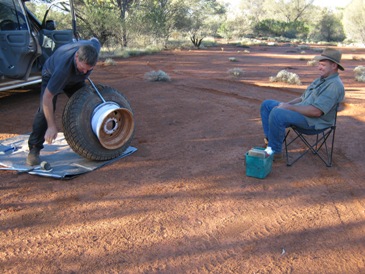1 Using some everyday experiences
You know from Angela’s experience in Week 1 that a great deal of learning takes place in our ‘ordinary’ lives. So this week will start with some of the things you probably do every day, without even thinking that they are tools that help you to learn.
Here is someone else who has thought a great deal about how people learn – Neil Thompson (Thompson, 2005). He suggested that knowledge and skills can be developed in six ways.
Reading
There are many different sorts of book and other written materials that can:
- help us expand our horizons
- provide new insights and ideas
- help us learn techniques that will save us time.
All types of writing can have these effects, including novels and poetry, as well as non-fiction, including self-help manuals, documentaries and biographies.
Asking
Some books, especially those with professional or academic readers in mind, are written in a style that is sometimes hard to understand or appreciate, so it is good to ask other people what they think about the ideas we come across in our reading. Just talking about ideas can help make sense of them.
We all learn a lot by asking other people – inside and outside the workplace – how they tackle things and why they do things a certain way; what they have learned about what works and what does not.
Watching

There are at least two aspects to watching: watching other people in order to learn different approaches to things, and watching carefully what happens when you do something new and then thinking about why it happened that way.
Often we work on automatic pilot, not really thinking about what we are doing. However, opening up our attention and taking notice of what happens creates useful learning opportunities.
Feeling
Thoughts, feelings, attitudes and behaviours are all linked. We can use our thoughts to make sense of our feelings and our intuition to guide our thinking.
Talking
Sharing ideas with colleagues, friends, family or members of an organisation you belong to is a good way of learning to understand a range of perspectives on a situation and to challenge your instinctive responses. Regular conversations can also help sharpen your communication and problem-solving skills.
Thinking
Sometimes there does not seem to be enough time to really think about our lives and learning, but Thompson points out that thinking time is an essential, rather than a luxury, for times when you are not busy.
If you put some effort into thinking about crises and planning to avoid them, you can save time on fighting problems in the future. You can be more in charge of what is happening to you rather than feeling at the mercy of unforeseen events.
Combining some of these approaches helps to build a more rounded picture of a topic or of a skill that you are trying to acquire or develop. For example, reading an article in a magazine might lead to talking through the ideas with friends, asking how they might do things differently and why. This in turn might encourage you to think about the way you normally approach similar situations, and then to try a different approach. Further reflection on whether or not it works for you and why (or why not) can be a valuable source of learning.

